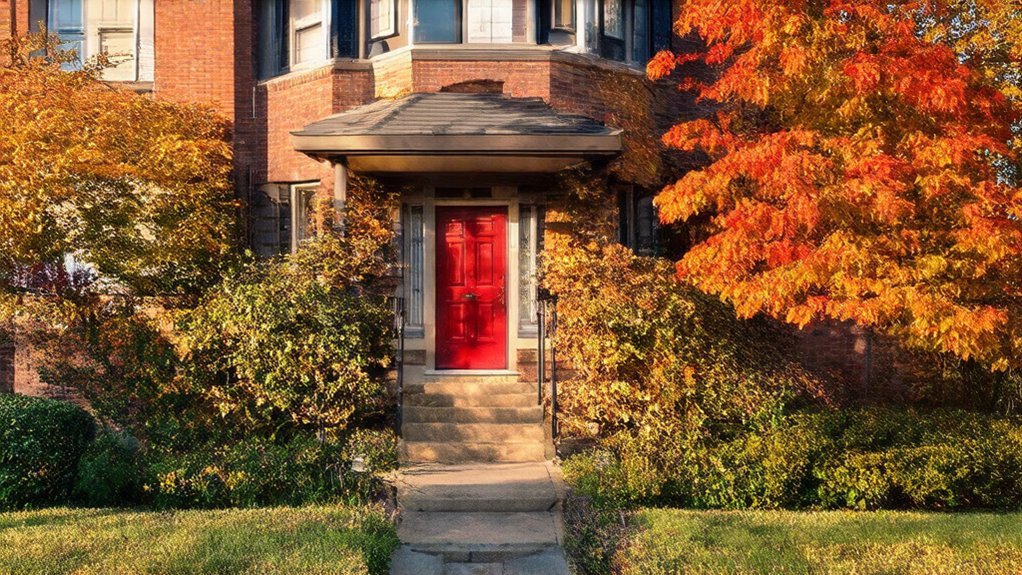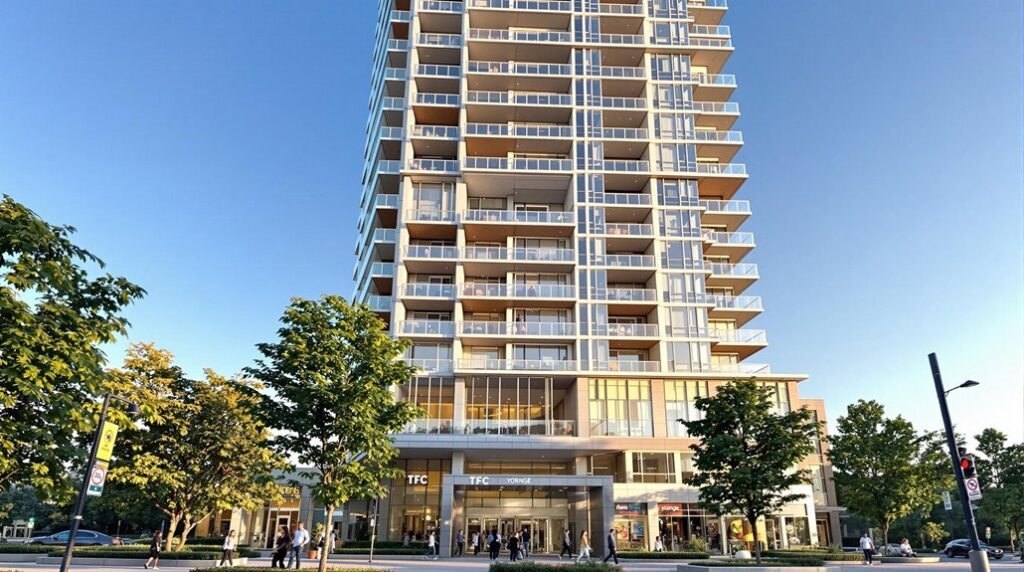As a homeowner or investor in Toronto’s dynamic real estate market, you’re bound to encounter disputes at some point. Whether it’s a contract breach, undisclosed property defects, or tenant issues, these conflicts can be stressful and potentially costly. You’ll need to navigate a complex legal landscape and employ strategic approaches to protect your interests. Understanding your rights, knowing when to negotiate, and recognizing the value of professional assistance can make all the difference. But how do you choose the best course of action when faced with a property dispute? The answer lies in a thorough guide that’ll equip you with the knowledge and tools to tackle these challenges head-on.
Key Takeaways
- Understand common disputes like contract breaches, undisclosed defects, and title issues to better navigate potential conflicts.
- Familiarize yourself with relevant laws, including the Ontario Land Transfer Tax Act and Residential Tenancies Act.
- Consider mediation or arbitration as faster, less costly alternatives to litigation for resolving real estate disputes.
- Engage a real estate lawyer early to protect your property rights and navigate complex legal issues effectively.
- Implement preventive measures like thorough documentation, due diligence, and title insurance to avoid future disputes.
Understanding Real Estate Disputes

In the domain of Toronto’s bustling real estate market, disputes can arise unexpectedly, causing headaches for buyers, sellers, landlords, and tenants alike. You’d think purchasing or selling property would be straightforward, right? Wrong. The reality is far more complicated, and it’s high time we faced the music.
Let’s get one thing straight: real estate disputes are a minefield. They’re not just about arguing over paint colors or whether the neighbor’s tree is encroaching on your property line. We’re talking serious issues here – ownership battles, contract breaches, and even outright deception. It’s enough to make you want to live in a tent.
These disputes often stem from undisclosed property defects, which sellers are legally obligated to reveal, or issues related to property titles, such as hidden liens or encumbrances.
Ever bought a house only to discover it’s riddled with undisclosed defects? Welcome to the club. Or perhaps you’re a landlord dealing with a tenant who thinks rent is optional? These scenarios are all too common in Toronto’s cut-throat real estate scene.
Here’s the kicker: these disputes don’t just magically resolve themselves. Oh no, that would be too easy. Instead, they often escalate into full-blown legal battles.
And let me tell you, courtrooms aren’t nearly as exciting as TV makes them out to be.
Common Disputes in Toronto Properties
But wait, there’s more! Remember that charming house you just bought? Turns out the seller conveniently forgot to mention the leaky roof and termite infestation. Breach of contract, anyone?
It’s like buying a car only to find out it’s actually a lemon with a fresh coat of paint. With North York’s housing market booming and prices soaring, these issues become even more financially significant for homeowners.
And let’s not forget about title defects. You might think you own your home, but undisclosed liens or fraudulent claims can throw a wrench in your ownership rights.
It’s like playing a game of real estate Russian roulette.
Renting in Toronto? Brace yourself for landlord-tenant conflicts. Eviction disputes and lease violations are as common as rush hour traffic on the 401.
It’s a battlefield out there, and your security deposit is the prize.
Finally, we’ve got construction defects. That brand-new condo you bought off-plan? It might come with a side of poor workmanship and building code violations.
Because who doesn’t love a little game of “spot the defect” in their new home?
In this concrete jungle, knowledge is power. Stay vigilant, do your homework, and maybe, just maybe, you’ll avoid becoming another statistic in Toronto’s real estate dispute saga.
Legal Framework for Property Conflicts

A legal labyrinth awaits those maneuvering property conflicts in Toronto. You’d think buying or renting property would be straightforward, but no—it’s a minefield of legislation and red tape. With Bill 23 aiming to expedite development processes, the legal landscape is becoming even more complex, especially concerning affordable housing concerns.
Let’s break it down. The Ontario Land Transfer Tax Act, Residential Tenancies Act, and Planning Act form the unholy trinity of property law in Toronto. They’re the rulebooks you’ll need to memorize if you want to avoid stepping on legal landmines. Fun, right?
Contracts are the backbone of property transactions, but they’re often more confusing than IKEA assembly instructions. Breaches, misrepresentations, and hidden defects—it’s like playing a high-stakes game of “Gotcha!” with your hard-earned money on the line.
Got a beef with your landlord or tenant? Welcome to the Landlord and Tenant Board circus. It’s supposed to be a streamlined process, but don’t hold your breath. Evictions, rent hikes, lease violations—they’ve seen it all, and you’re just another number in the queue.
Think you’re in the clear after closing? Think again. Title issues can pop up like unwanted guests at a party. Undisclosed liens, boundary disputes—suddenly your dream home feels more like a nightmare. But hey, that’s what title insurance is for, right? Because nothing says “homeownership” like another insurance policy.
Feeling overwhelmed? Join the club. Mediation and arbitration are the new cool kids on the block, promising to resolve conflicts without the courtroom drama. It’s like couples therapy for property disputes—less expensive and potentially less traumatic than a full-blown legal battle.
Negotiation Strategies for Quick Resolution
Ready to tackle your property dispute head-on? Let’s face it, conventional wisdom about real estate conflicts in Toronto is often outdated and unhelpful. It’s time to get smart about negotiation strategies that actually work.
First things first: define the issues clearly. You can’t solve a problem you don’t understand, right? Gather evidence like a detective on a mission. Those property documents you’ve been ignoring? Dust them off. They’re your secret weapon.
Now, here’s where most people go wrong. They treat negotiations like a battle. Newsflash: it’s not about winning, it’s about resolving. Maintain a collaborative attitude. Yeah, I know, easier said than done when you’re fuming. But trust me, it pays off.
Set realistic expectations. You’re not going to get everything you want, and neither is the other party. It’s called compromise, folks. Embrace it.
Need some extra firepower? Don’t be afraid to bring in the pros. Mediators and lawyers aren’t just for courtroom dramas. They can be your ace in the hole.
| Do’s | Don’ts |
|---|---|
| Define issues clearly | Assume hostile intentions |
| Gather relevant evidence | Ignore compromise options |
| Maintain collaboration | Forget about professionals |
| Set realistic expectations | Treat it like a battle |
Look, I get it. Property disputes are frustrating. But with these strategies, you’re not just negotiating; you’re steering towards a solution. And isn’t that what we all want? A quick resolution that doesn’t leave us pulling our hair out? So, roll up your sleeves and get to it. Your sanity (and your property) will thank you.
Mediation: A Collaborative Approach

When it comes to resolving real estate disputes in Toronto, mediation stands out as a powerful alternative to lengthy court battles.
Let’s face it, who wants to spend years and a fortune on legal fees when there’s a faster, cheaper option?
Mediation isn’t just another buzzword. It’s a game-changer.
Envision this: you’re sitting at a table with the other party, and there’s a neutral third party helping you hash things out. No judges, no juries, just real people trying to solve real problems. Sounds invigorating, doesn’t it?
Here’s the kicker: mediation is flexible.
Unlike those stuffy courtrooms where outcomes are as predictable as Toronto traffic, mediation lets you get creative. Want to explore unconventional solutions? Go for it. The mediator’s there to facilitate, not dictate.
But wait, there’s more.
Mediation offers something litigation can’t – privacy. You get to air your grievances without the whole world watching. It’s like having a heart-to-heart in your living room instead of shouting on a busy street corner.
Worried about being stuck with a bad deal? Don’t be.
Mediation is non-binding. If you can’t reach an agreement, you can still take it to court. It’s like having a safety net under your tightrope.
Arbitration in Real Estate Disagreements
Mediation’s not your style? Maybe you’re tired of playing nice and want someone to make a real decision. Enter arbitration – the no-nonsense cousin of mediation in the world of real estate disputes.
Here’s the deal: You and the other party agree to let a neutral arbitrator play judge. They’ll listen to both sides, weigh the evidence, and make a binding decision. It’s like going to court, but without all the pomp and circumstance.
Why choose arbitration? For starters, it’s faster than dragging your case through the court system. No more waiting months (or years) for a trial date.
Plus, it’s often cheaper. You won’t be burning through cash on lengthy legal procedures.
But here’s the kicker: You’ll need to agree to arbitration in advance. It’s usually buried in those contracts you sign without reading. Surprise! You’ve already agreed to it.
Privacy is another perk. Unlike public court trials, arbitration keeps your dirty laundry under wraps. No nosy neighbors finding out about your property disputes.
Now, here’s the catch: The arbitrator’s decision is usually final. No do-overs, no appeals (well, almost none). It’s like playing a high-stakes game of rock-paper-scissors. One round, and it’s over.
Litigation: When All Else Fails

You’ve exhausted all other options, and now it’s time for the big guns: litigation. Let’s face it, nobody wants to end up here, but sometimes life throws you a curveball, and you’ve got to swing.
Litigation in real estate disputes is like entering a marathon you never signed up for. It’s time-consuming, expensive, and frankly, a bit of a headache. But when negotiation and mediation have failed you, what choice do you have?
Here’s the deal: you’re in for a long haul. The process involves several stages, from evaluating legal issues to gathering evidence, and potentially a full-blown court trial. It’s like preparing for a battle, but instead of swords, you’re wielding contracts and property deeds.
In Ontario, real estate litigation covers a smorgasbord of issues. Contract breaches, boundary disputes, title defects – you name it, they’ve seen it. Each case is unique, requiring its own legal strategy. It’s not exactly a one-size-fits-all situation.
Prepare yourself for a lengthy process. Court schedules are about as flexible as concrete, and your case could drag on for months or even years. It’s enough to make you want to pull your hair out, isn’t it?
But here’s the kicker: you need an experienced real estate lawyer. They’re your guide through this legal maze, your champion in the courtroom. Without one, you’re like a fish out of water, flopping around in a sea of legal jargon and procedural complexities.
Protecting Your Property Rights
In light of the potential threats to your property rights, it’s essential to arm yourself with knowledge and legal protection.
Let’s face it: the world of real estate can be a minefield of disputes, and you don’t want to be caught off guard.
First things first: get a real estate lawyer on your side. Sure, it might seem like an unnecessary expense, but trust me, it’s worth every penny. These legal eagles can navigate the murky waters of boundary disputes and contract breaches like nobody’s business. They’re your secret weapon in the battle for your property rights.
Now, let’s talk about title insurance. It’s not the most exciting topic, I know, but it’s a game-changer. Think of it as a shield against those pesky undisclosed liens and fraudulent claims that can pop up out of nowhere. Wouldn’t you rather have that protection than be left high and dry when some long-lost relative claims ownership of your property?
Zoning laws. Ugh, right? But here’s the thing: understanding them is vital. You wouldn’t buy a car without knowing how to drive it, so why invest in property without knowing the rules? Violating these laws can land you in hot water faster than you can say “property dispute.”
Lastly, don’t wait for conflicts to escalate. Be proactive! Whether it’s a disagreement with your tenant or a neighbor encroaching on your land, nip it in the bud. Early intervention can save you from costly litigation down the road.
Preventive Measures for Future Disputes
Real estate disputes often arise from a lack of foresight, but you can greatly reduce your risk by taking proactive steps.
Let’s face it, the world of real estate can be a minefield. But why stumble blindly when you can arm yourself with knowledge?
First things first: documentation. It’s not sexy, but it’s vital. You wouldn’t go skydiving without a parachute, so why enter a real estate deal without clear terms and conditions?
Spell everything out in black and white. Leave no room for misinterpretation.
Due diligence is your best friend. Seriously, it’s like getting a full health check-up for your property. Title searches, inspections – the works.
Uncover those skeletons in the closet before they come back to haunt you. Trust me, it’s worth the effort.
Communication is key. Talk to your neighbors. Yes, even that grumpy one who never smiles.
Address concerns early, and you’ll avoid headaches later. It’s amazing what a simple conversation can prevent.
Now, here’s a tip that might save your bacon: title insurance. It’s like a safety net for your ownership rights.
Sure, it’s an extra cost, but can you really put a price on peace of mind?
Lastly, get a lawyer. I know, I know – lawyers aren’t everyone’s cup of tea.
But in this case, they’re indispensable. They’ll review agreements, provide guidance, and keep you on the right side of the law.
Think of them as your real estate GPS, steering you clear of legal potholes.
Conclusion
Real estate disputes in Toronto? What a headache! But don’t throw in the towel just yet. You’ve got options, from negotiation to litigation. Remember, prevention is key. Do your homework, document everything, and don’t be afraid to seek legal help. It’s not rocket science, but it does require some savvy. Stay proactive, know your rights, and you’ll navigate these murky waters like a pro. Who knows? You might even come out on top without breaking the bank.


















